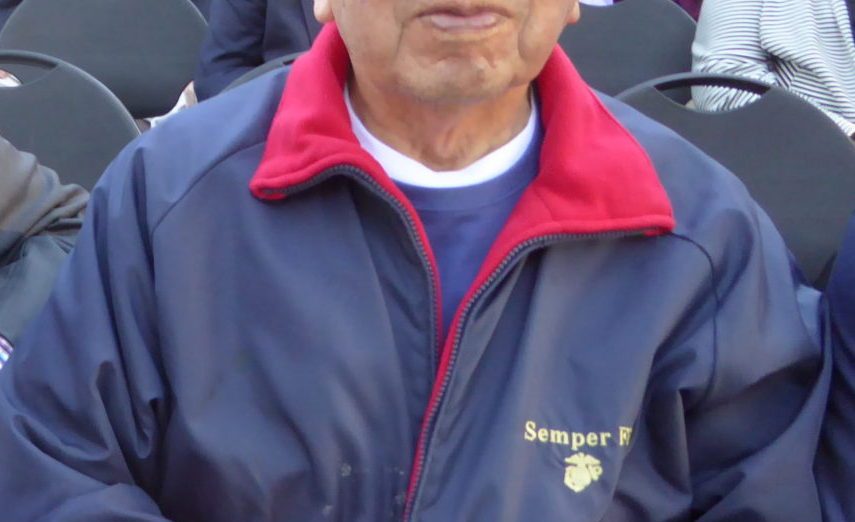It is a long, long story, but worth repeating. I am referring to doing my duty for “God and Country” during three major wars—world War II because the Japanese Empire sent an invitation on a silver platter by bombing Pearl harbor. The other, because North Korea wanted to consolidate with the South, but we disagreed because the North was saturated with Communism. VietNam? The salvation of a friendly nation. It cost too much. On both sides.
But where was I? What was I doing while our cemeteries received our fallen heroes? What follows is truth with minimal entanglement with “what if?”
The initial culprit that seals my fate in the U.S. Marine Corps in 1943 was the typing class in high school and my major, Accounting, in Junior College. The Corps could not be choosey—it was desperate for typists, even draftees. I, we, were assigned special serial numbers (before Social Security). We draftees were not considered “real” Marines. We were not fit for combat. So, instead of being sent to Hawaii to train for the invasion of Tarawa, I was awarded a free trip to the 6th Defense Battalion on Midway Island. I inherited the position of the Pay Clerk from a bona-fide Sergeant of the “old” Corps. My new home was Eastern Island (the large island was Sand Island). My office and my bunkbed were underground (sand). Midway was actually a submarine base, and a home of planes that bombed the Marshall Islands. The battle of Midway, that turned the tide in our favor, was 4 June 1942.
How did I miss the war? Without a heavy dose of boasting, by excellent performance. My record, a promotion to Private First Class on 1 September 1943 and Corporal on 18 October 1943. Sergeant? Eight months later.
For unknown psychological reasons, the length of tour on the island was one year. My First Sergeant, Albert Koesterer, recommended that I be retained because of my job performance. I was transferred to Sand Island to serve as Assistant Chief Clerk to the Sergeant Major of the 1st AAA Battalion. Better living quarters. Better mess hall. Outdoor movies every night. The sub base (Navy) had an ice cream place, indoor movies, and a beer bar (two beers per day per person for 15 cents each). Paradise in comparison to the primitive Eastern across the lagoon.
I left Midway in April 1945, aboard the USS Arrow. No war. No combat, so far. After being retained as “essential” for six months at Camp Elliot (as Administrative Chief), I was honorably discharged as Platoon Sergeant on 9 March 1946. My mother’s tears were of joy.
Peace followed until North Korea raised its ugly warhead. I was called to active duty on 21 July 1950 and left Moffett Field as Administrative Chief of the Amphibious Group B. I dissolved the group while arriving at Camp Pendleton. Of 145 men, 140 made it to Korea. I was assigned to the general staff of General Twining (Personnel).
It was a beginning of a four-year billet of recruiting. First, Fresno, actual recruiting until June 1951; then, to the regional headquarters, in San Francisco—until I received orders in June 1952, to take charge of the Induction Station in Guam. The USS Mitchell transported my family to Guam (arrived in October 1952.) No Korea. We left Guam in April 1954 for the Marine base in 29 Palms (Mojave Desert).
Just a brief explanation, but more in detail, of how I missed the Korean “war.” Major W. W. Brown was in charge of the Reginal Headquarters. I was promoted to Technical Sergeant in 1951, so I was transferred to headquarters in San Francisco. Major Brown was transferred to Headquarters, Marine Corps Personnel. He recommended me for the Induction position. Fate or the Wheel of Fortune.
Next, of course, was VietNam—the unwanted war. I was in VietNam from 1 September 1965, to 18 October 1965 (in ChuLai). Cause? Recurring bad stomach. Destination, Guam Hospital. After a two-week stay, I was provided air transportation to Okinawa. A doctor there decided that I should not return to VietNam. I was ordered, instead, to the rear echelon of Marine Air Group 36 quartered in Iwakuni, Japan. Ten months there and on to Treasure Island, San Francisco to retire on 31 December 1966. Twenty years for God and Country.
Immense gratitude to Marines who “lent me a hand.” To First Sergeant Albert Koesterer who gave me the spark to succeed on Midway and recommended my stay there. To First Sergeant Harvey at Camp Elliott who had me promoted to Platoon Sergeant just before my discharge in March 1946. To Major W. W. Brown for his sending me to Guam (instead of Korea). At 29 Palms, to Warrant Officer Earl Karr for his assistance in obtaining a transfer to San Francisco (in 1995). At 29 Palms, to Colonel Thomas S. Ivey for hiring me as accountant for the Officer’s Club (at $150.00 per month), which, with a letter from the Colonel, qualified me to buy our present home in Santa Clara. In 1961, at Okinawa, to General Lucky for allowing me to attend my wife’s dad’s funeral (after completing only 11 months of a 13 month tour). I was the General’s bookkeeper at his club.
Circumstances and many more Marines caused me to miss combat. No regrets. I survived. I shall be buried with honors as have all the combat heroes. But it shall be without shame.
Rafael Roman Jimenez is 94 years old, lives in Santa Clara and attends classes at Santa Clara Adult Ed. He describes himself as “very fortunate.”
Do you have a personal essay that you’d like to submit for consideration? Send them to scweekly@ix.netcom.com subject line: Mission City Voices.






